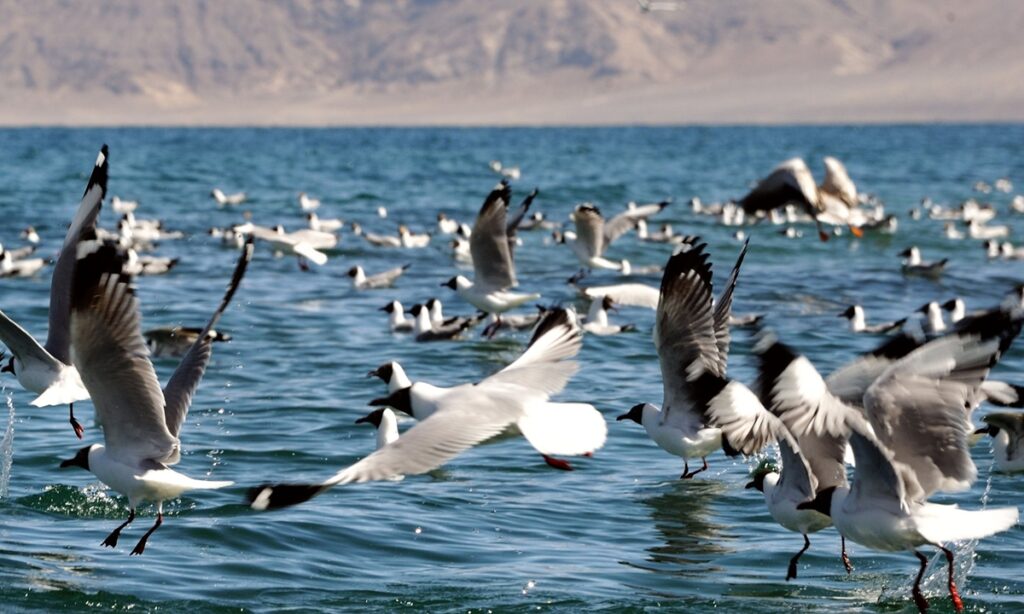The Pangong Tso lake, located at the junction of China and India in Ali prefecture of Southwest China’s Tibet Autonomous Region, is a paradise for migratory birds – every year, thousands of birds fly here to build nests and lay eggs, breed and roost.
The average altitude of the Pangong Tso lake is 4,240 meters and the total space is 56,303.22 hectares. The lake is a typical river-type lake and also a salty lake. It is home to dozens of national-level protected animals such as black-necked cranes, Tibetan gazelle, brown-headed gulls, and plateau schizome.
The lake is surrounded by mountains, with snowy mountains in the distance. The water of Pangong Tso lake is very clear. Due to factors such as light, depth and brightness, the lake takes on different colors such as dark green, light green and dark blue. The freshwater area of the eastern section of Pangong Tso lake is lush with aquatic plants, attracting tens of thousands of birds.
There are a number of different types of islands on the lake. Among them, Bird Island is the most unique and spectacular one. The island is a habitat of brown-headed gulls, cygnets, yellow ducks, bar-headed geese, black-necked cranes and other nationally protected birds.
In order to protect the beautiful waters and clear shores, Tibet approved a wetland nature reserve in 2002 and established the Pangong Tso Lake National Reserve in 2004. Nowadays, regular patrols are carried out in the protected area to stop illegal fishing and theft of bird eggs.
It is not easy to carry out patrols in a nature reserve in the region. “A large area of patrol, even by a car, takes a whole day,” Sonan Dawa, a wetland patroller, was quoted by tibet.cn as saying. There are a total of 39 local farmers or herdsmen serving in this position at the Pangong Tso lake.
“There were no buildings on the lakeside, and the birds were very close to humans. After the Pangong Lake became more and more famous, the number of tourists increased, and the birds ran away when they saw people,” said Dawa.
Fortunately, because of these patrols, the birds can live peacefully here again,” Dawa noted.
Brown-headed gulls on Pangong Lake Photo: Xinhua




